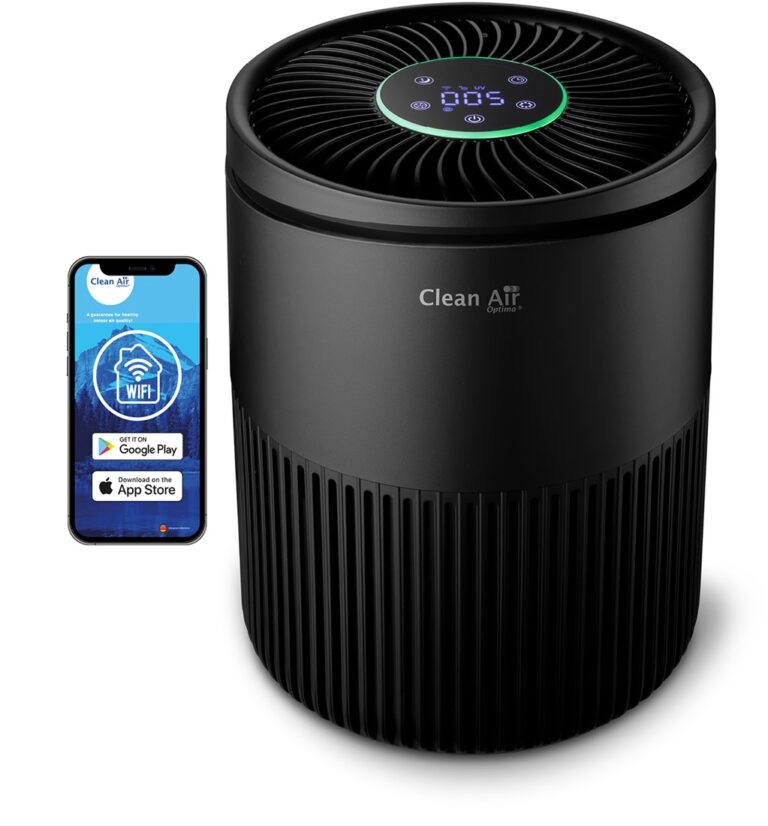Air purifier ionizers can have negative side effects, such as the release of harmful ozone particles. Ozone is a lung irritant and can cause respiratory issues, especially for individuals with asthma or other respiratory conditions.
In addition, ionizers can produce an unpleasant smell and may not effectively remove all airborne contaminants. However, many air purifier ionizers now come with built-in ozone sensors and are designed to emit low levels of ozone, reducing the risk of negative side effects.
It is important to research and choose an air purifier ionizer that meets safety standards and is suitable for your specific needs.

Credit: www.amazon.com
Understanding Air Purifier Ionizers
What are air purifier ionizers?
Air purifier ionizers are devices that help improve indoor air quality by releasing negatively charged ions into the air. These ions attract and attach themselves to positively charged particles such as dust, pollen, and pet dander, making them heavier and causing them to fall out of the air.
How do air purifier ionizers work?
Air purifier ionizers use a process called ionization to produce negative ions. These ions are then released into the air, where they interact with airborne contaminants. As the particles become heavier and fall, they are captured by a filtration system or can be removed by regular cleaning.
Benefits of using air purifier ionizers
Air purifier ionizers provide several benefits, such as reduced allergens and respiratory irritants in the air, improved indoor air quality, and a cleaner environment. They can help alleviate symptoms of allergies, asthma, and other respiratory conditions by removing harmful particles from the air you breathe.
Potential Negative Side Effects Of Air Purifier Ionizers
Air purifier ionizers are touted for their ability to remove harmful particles and allergens from the air, promoting cleaner and healthier indoor environments. However, it is important to be aware of the potential negative side effects associated with these devices.
One common concern is the generation of ozone. While some ionizers claim to emit negligible amounts of ozone, studies have linked exposure to this gas with respiratory issues such as coughing, shortness of breath, and even asthma exacerbation. People with pre-existing respiratory conditions may be particularly vulnerable to these effects.
In addition, some individuals may experience allergic reactions or irritation when exposed to ionizers. This can manifest as skin rashes, eye irritation, or nasal congestion. It is important to note that these reactions can vary depending on individual sensitivity and the concentration of ions in the air.
Given these potential negative side effects, it is advisable to carefully consider the use of air purifier ionizers and to prioritize models that have been tested and certified to meet appropriate safety standards.
Debunking The Myths Surrounding Air Purifier Ionizers
There is often confusion between ozone generators and ionizers, and it is important to clarify the difference. Ozone generators create ozone as a byproduct, which can be harmful when present in high concentrations. On the other hand, ionizers use an electrical charge to generate negative ions, which attach to pollutants, causing them to settle out of the air.
Understanding safe ozone levels for indoor air quality is crucial. The U.S. Environmental Protection Agency (EPA) has set a limit of 0.05 parts per million for ozone concentration in indoor air. As long as ionizers are well-designed and operate within these recommended levels, there should be no negative effects.
Dispelling misconceptions about the dangers of ionizers, it is important to note that ionizers do not produce harmful levels of ozone. They are a safe and effective way to improve air quality, and numerous studies have shown their benefits in reducing airborne allergens and improving overall respiratory health.
Best Practices For Using Air Purifier Ionizers
Air purifier ionizers have gained popularity due to their ability to improve indoor air quality by removing harmful particles from the air. However, it is important to consider potential negative side effects of these devices. When choosing an air purifier, opt for models with low ozone emission. Excessive ozone can cause respiratory irritation, especially for individuals with asthma or other respiratory conditions. Additionally, it is crucial to maintain proper ventilation while using ionizers to prevent the build-up of ozone in indoor spaces. This can be achieved by opening windows periodically or using a central ventilation system. Seeking professional advice before purchasing an ionizer is also recommended as they can help assess the specific needs of your living space and provide guidance on choosing the most suitable device.
Frequently Asked Questions On Do Air Purifier Ionizers Have Any Negative Side Effects
What Are The Side Effects Of Ionized Air Purifiers?
Ionized air purifiers may have mild side effects like ozone irritation and respiratory discomfort in sensitive individuals. However, the severity of these side effects varies and is usually minimal. It is suggested to use them in well-ventilated areas and follow manufacturer’s instructions to minimize any potential adverse effects.
What Are The Downsides Of An Ionizer?
An ionizer may produce ozone, a harmful gas that can irritate the respiratory system. Additionally, ionizers may not effectively remove larger particles like dust and pollen from the air. It is important to consider these downsides before purchasing an ionizer for air purification purposes.
Are Ionizers Safe For People?
Ionizers are generally safe for people as they help remove pollutants from the air, like allergens and odors. However, people with respiratory conditions like asthma should be cautious and consult with a healthcare professional before using one. Proper maintenance and regular cleaning of ionizers are important for their safe usage.
Conclusion
It is important to weigh the potential negative side effects of using air purifier ionizers. While they are effective in removing pollutants from the air, studies have shown that they can produce harmful byproducts such as ozone. Furthermore, the long-term health effects of prolonged exposure to ionizers are still not fully understood.
Therefore, it is recommended to use these devices with caution and in accordance with manufacturer guidelines.




